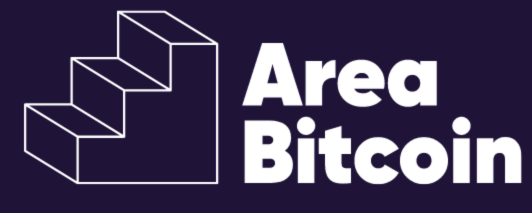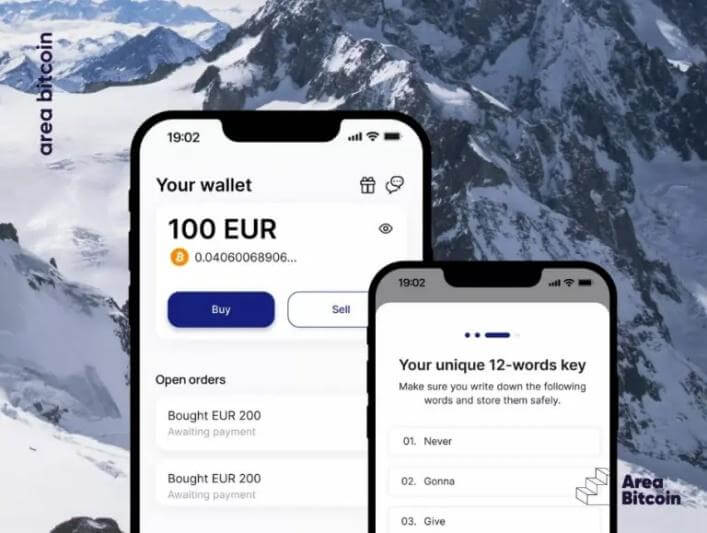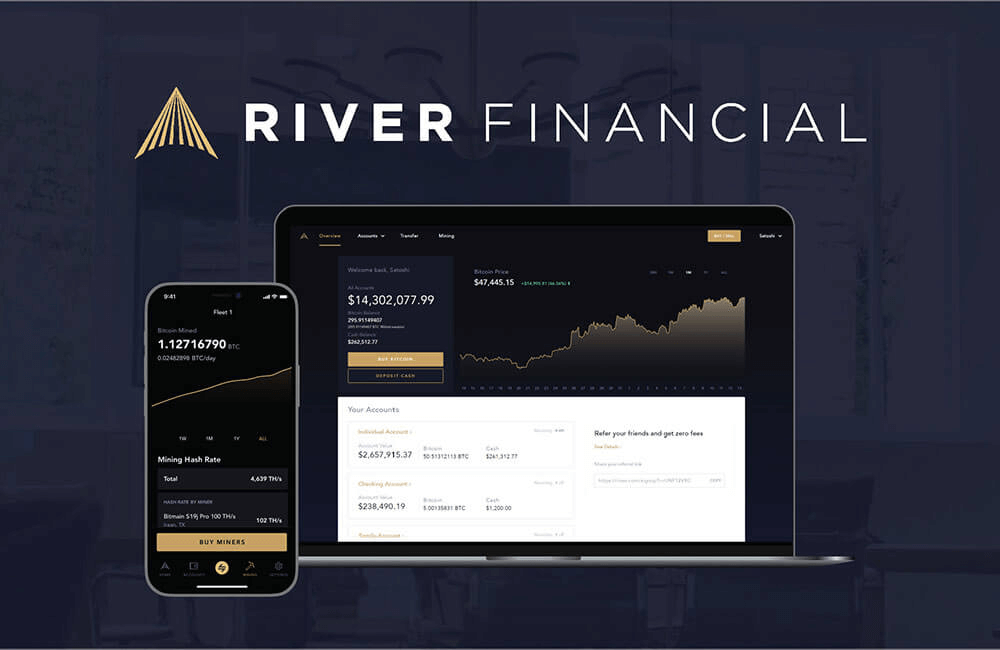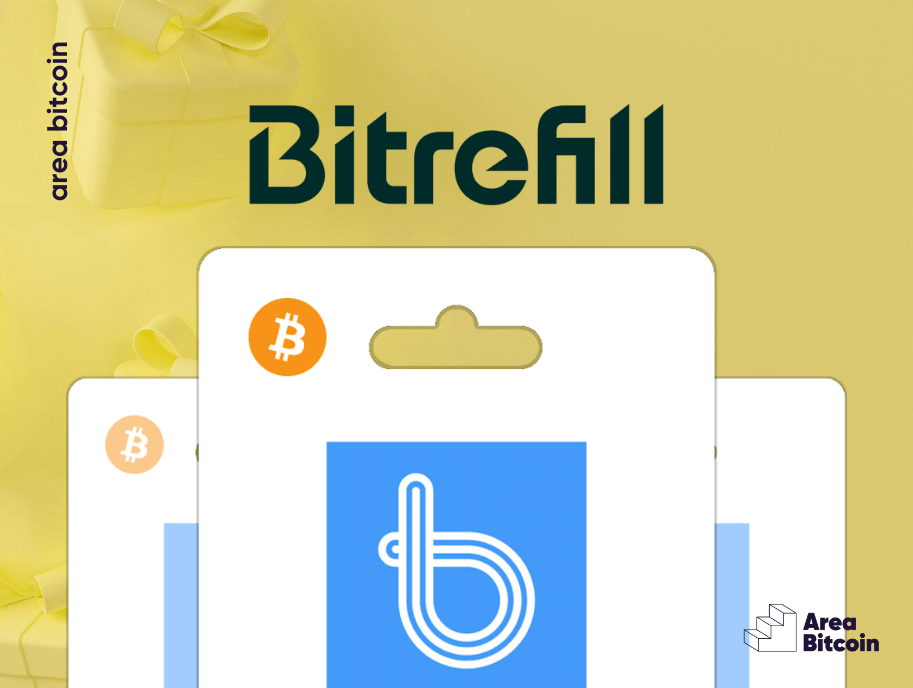Today, there are thousands of platforms for buying and selling Bitcoin, along with wallets and apps offering a variety of solutions for those looking to use BTC. Among these platforms is Coinbase, launched in 2012 and now recognized as one of the largest exchanges in the market.
In this article, we’ll dive into what Coinbase is, how it works, its features, and whether it’s worth using. If you’re unsure about this exchange, this is the perfect place to find your answers.
Let’s get started!
About Coinbase
Coinbase was founded in June 2012 by Brian Armstrong, a former Airbnb developer, and Fred Ehrsam, a former Goldman Sachs trader, one of the largest investment banks in the United States. The two met at an entrepreneurial meetup, and while Ben Reeves, co-founder of Blockchain.info, was initially part of the team, he later left due to differing visions for Coinbase’s direction.

The company started with a straightforward goal: to provide a simple and intuitive platform for anyone to buy and store Bitcoin. Today, Coinbase calls itself “the world’s most trusted platform for buying, selling, and managing cryptocurrency.”
Initially focused on the U.S. market, the exchange allowed users to buy and sell Bitcoin through bank transfers. Over time, they expanded to support other currencies.
In 2013, after securing a $23 million investment, the company gained more market notoriety and saw a significant surge in 2017, as interest in Bitcoin and other cryptocurrencies grew. During this period, Bitcoin’s price skyrocketed to $20,000.
Stock Market Listing
In 2020, Coinbase filed for an IPO (Initial Public Offering) to list its shares on the U.S. stock market.
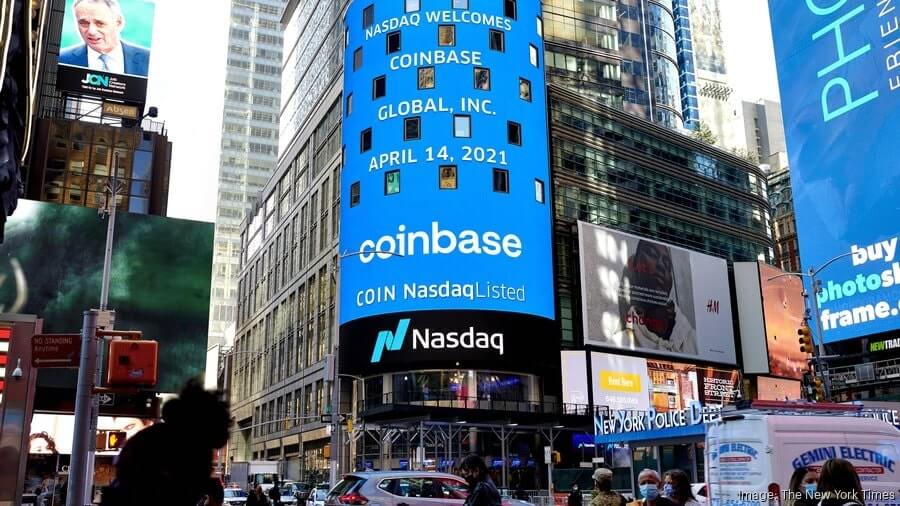
The company achieved a pre-IPO valuation of $100 billion through a private auction. This milestone not only made Coinbase the first exchange to go public but also established it as the most valuable company in the sector to undertake an IPO.
On April 14, 2021, it was officially listed, debuting with a reference share price of $250. To mark the occasion, the company embedded a hidden message in Bitcoin’s blockchain, referencing Satoshi Nakamoto’s original message in the Bitcoin genesis block.
Coinbase Services
In addition to enabling the buying and selling of Bitcoin and altcoins (shitcoins), Coinbase offers a range of services designed for both individual users and businesses:
Individual users:
- Wallet: A self-custodial wallet for securely storing Bitcoin, altcoins, NFTs, and DeFi assets.
- Card: A card that allows users to spend cryptocurrency and earn cashback in digital currencies.
- Learning Rewards: A feature where users can watch videos and complete tasks to earn cryptocurrency rewards.
- On-chain Apps: A collection of blockchain-based services marketed as decentralized (though not fully decentralized).
- Staking: A tool for staking cryptocurrencies to earn rewards.
- Private Client: Services for funds, family offices, and high-net-worth individuals.
- Coinbase One: A subscription service offering lower trading fees and higher staking rewards.
Businesses:
- Institutional: Solutions for institutional investors.
- Prime: Integrated trading, finance, and custody services.
- Asset Listing: A service for companies to list their assets (shitcoins) on Coinbase.
- Commerce: A feature enabling merchants to accept digital currencies in their businesses.
- Platform: A spot market for high-frequency trading.
- International Exchange: Access to perpetual futures markets.
- Derivatives: Futures market trading.
- Staking: Earn rewards through staking in Coinbase products.
Platform Fees (Maker-Taker)
Coinbase operates on a fee model known as maker-taker, where fees differ based on whether you’re adding liquidity (maker orders) or removing liquidity (taker orders).
Fees may also vary slightly depending on your country and chosen payment method, but generally, they include:
- Taker Fees: Between 0.05% and 0.60%, depending on the 30-day trading volume.
- Maker Fees: From 0.00% to 0.40%, also depending on trading volume.
- Deposits: ACH (bank transfers in the U.S.) are free. Wire transfers have a $10 deposit fee and a $25 withdrawal fee.
- Withdrawals: U.S. dollar withdrawals also incur a $10 fee for wire transfers.
Coinbase Wallet
Alongside its trading platform, Coinbase offers a hot wallet that supports Bitcoin and shitcoins. This wallet is self-custodial, giving users control over their private keys.
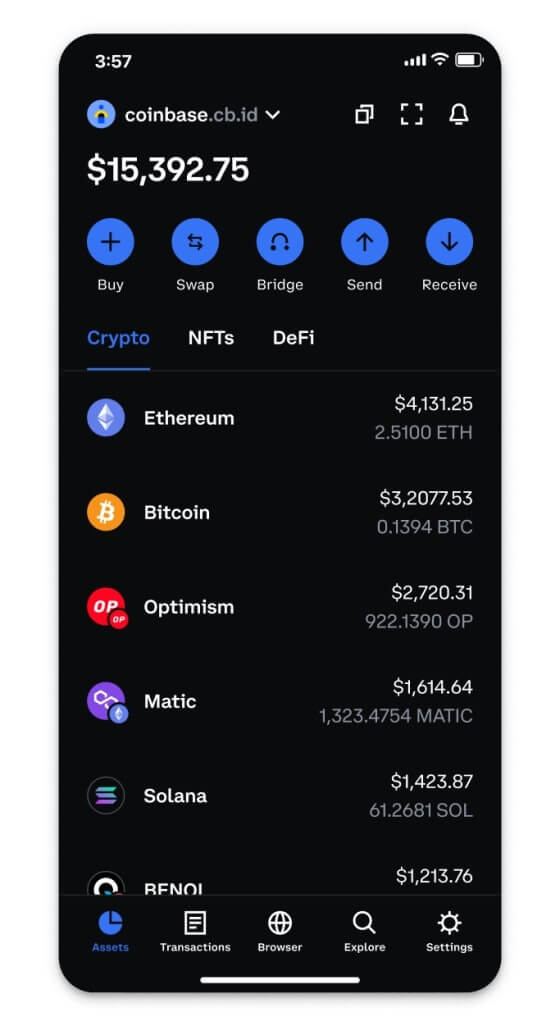
However, the trustworthiness of Coinbase Wallet has been questioned, as it is linked to a centralized company that enforces KYC (Know Your Customer) checks on its users.
Additionally, its support for multiple networks and applications may pose security risks for users who solely want to store Bitcoin.
Is Coinbase Reliable?
While Coinbase is a globally recognized platform with thousands of users, it operates as a centralized service and requires KYC (Know Your Customer) verification. Additionally, its focus on offering services involving shitcoins suggests a greater emphasis on monetizing users rather than providing a purely secure and efficient Bitcoin solution.
It’s important to note that Bitcoin should never be stored on exchanges or with third parties. Centralized platforms can freeze or close your account without warning, as was the case with a user who shared their experience on X (formerly Twitter):
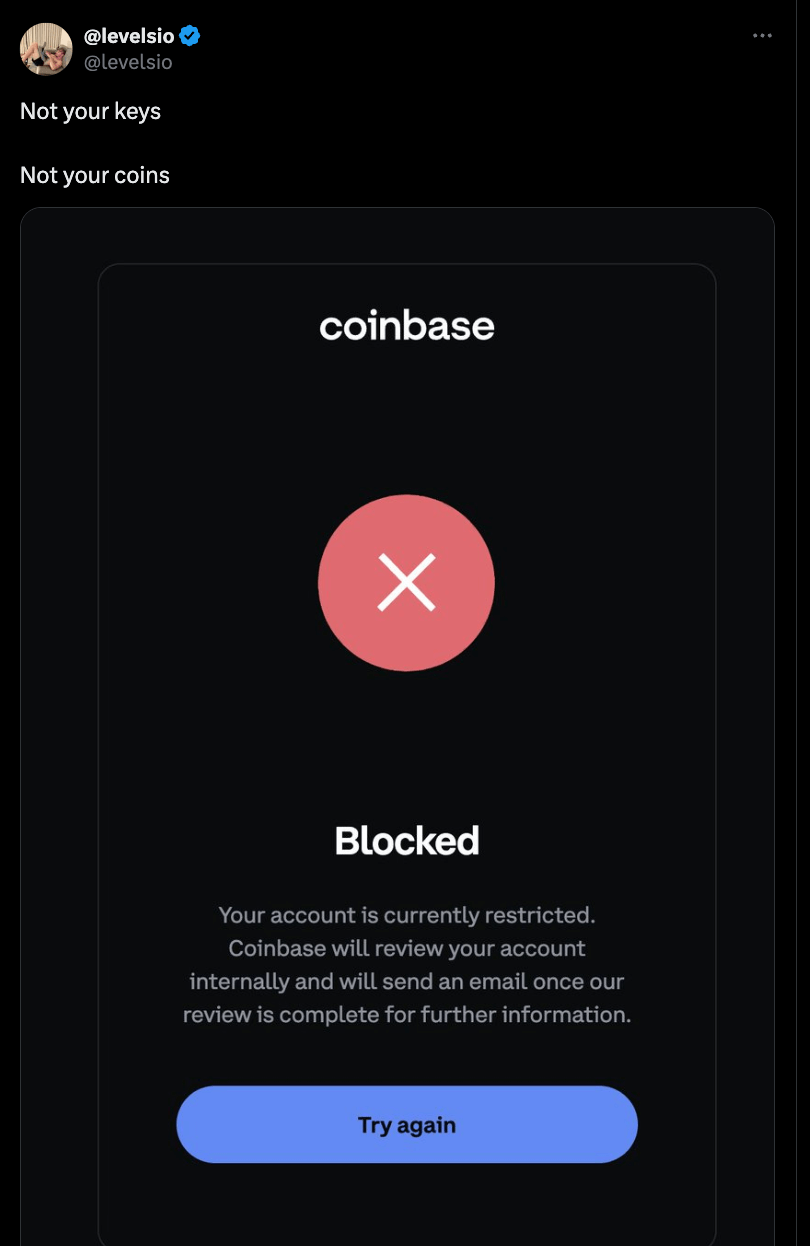
His account was restricted and in the comments, we can see several other cases of users who had their accounts restricted or banned for no reason in Coinbase. Many attempts to contact the company’s support remain unanswered.
This isn’t exclusive to Coinbase–it’s a common risk with centralized exchanges. That’s why it’s always worth emphasizing: an exchange is not a wallet (even if Coinbase has one).
To ensure the security of your Bitcoin, always use a self-custodial wallet, preferably a cold wallet, such as hardware wallets like Jade or Trezor.
Conclusion
As we’ve explored throughout this article, Coinbase is one of the largest exchanges in the market, offering a variety of services for both individuals and businesses. Its status as the first exchange to go public has brought significant attention to its role in the industry.
However, self-custody remains a fundamental principle/pillar of Bitcoin. It’s always recommended to purchase Bitcoin and transfer it immediately to a self-custodial wallet for complete control over your assets.
I hope this article has provided valuable insights into Coinbase and helped you determine whether it’s a reliable platform for your needs.
Until the next article, and OPT OUT!
Share on your social networks:

Founder of Area Bitcoin, one of the largest Bitcoin education projects in the world, she is a marketer, passionate about technology, and a full-time hands-on professional. She has participated in major Bitcoin conferences such as Adopting Bitcoin, Satsconf, Surfin Bitcoin, and Bitcoin Conference.
Did you like this article? Consider buying us a cup of coffee so that we can keep writing new content! ☕
